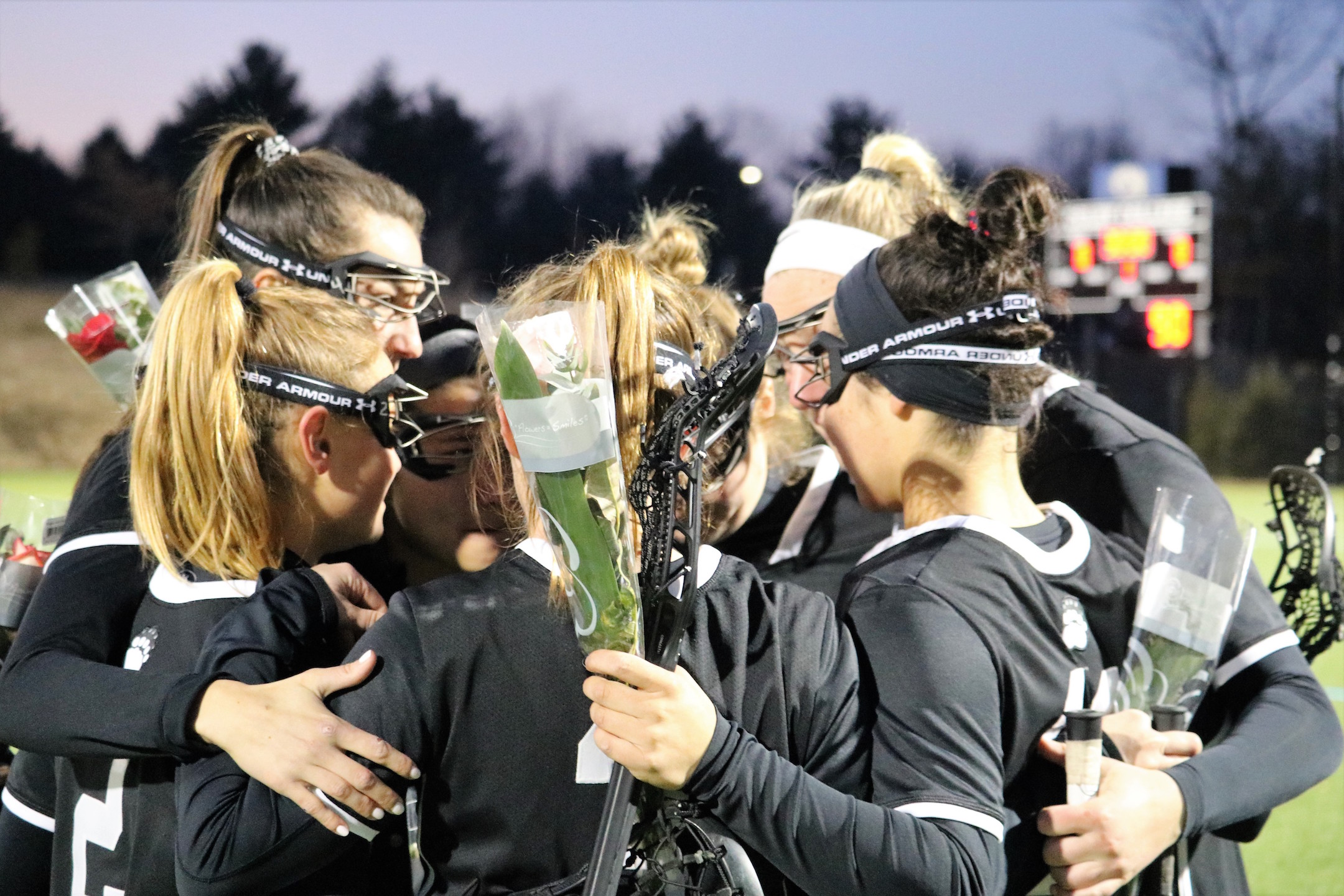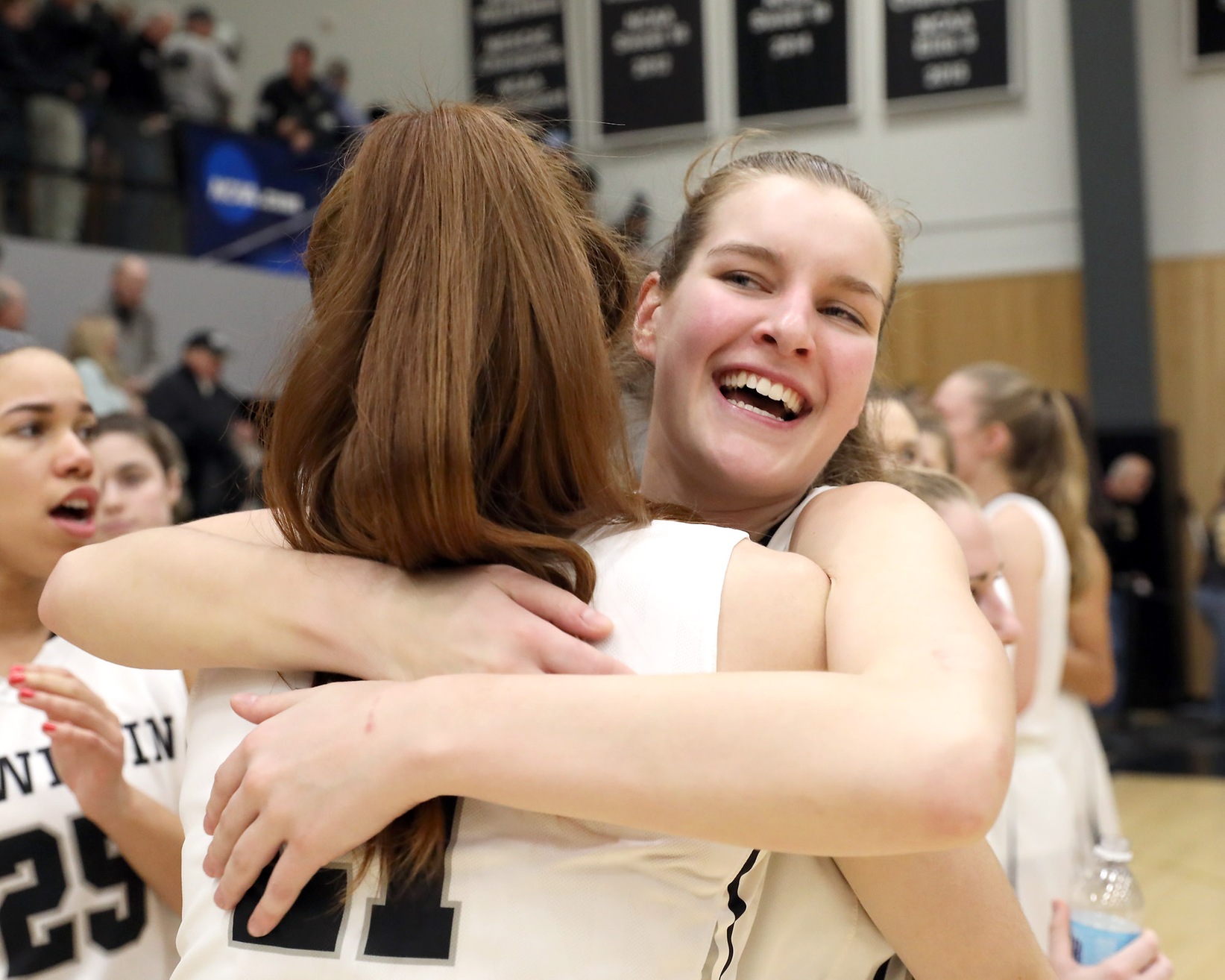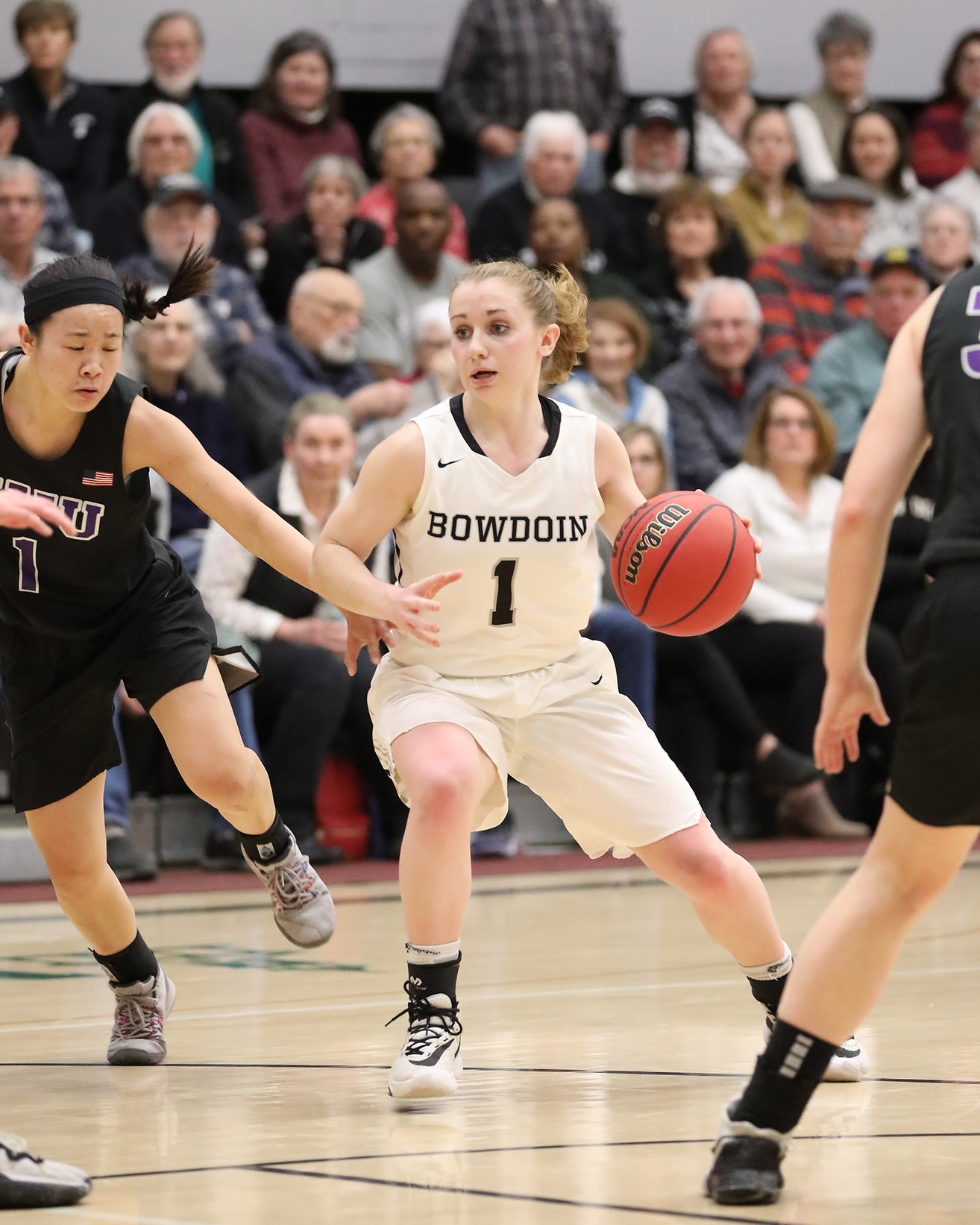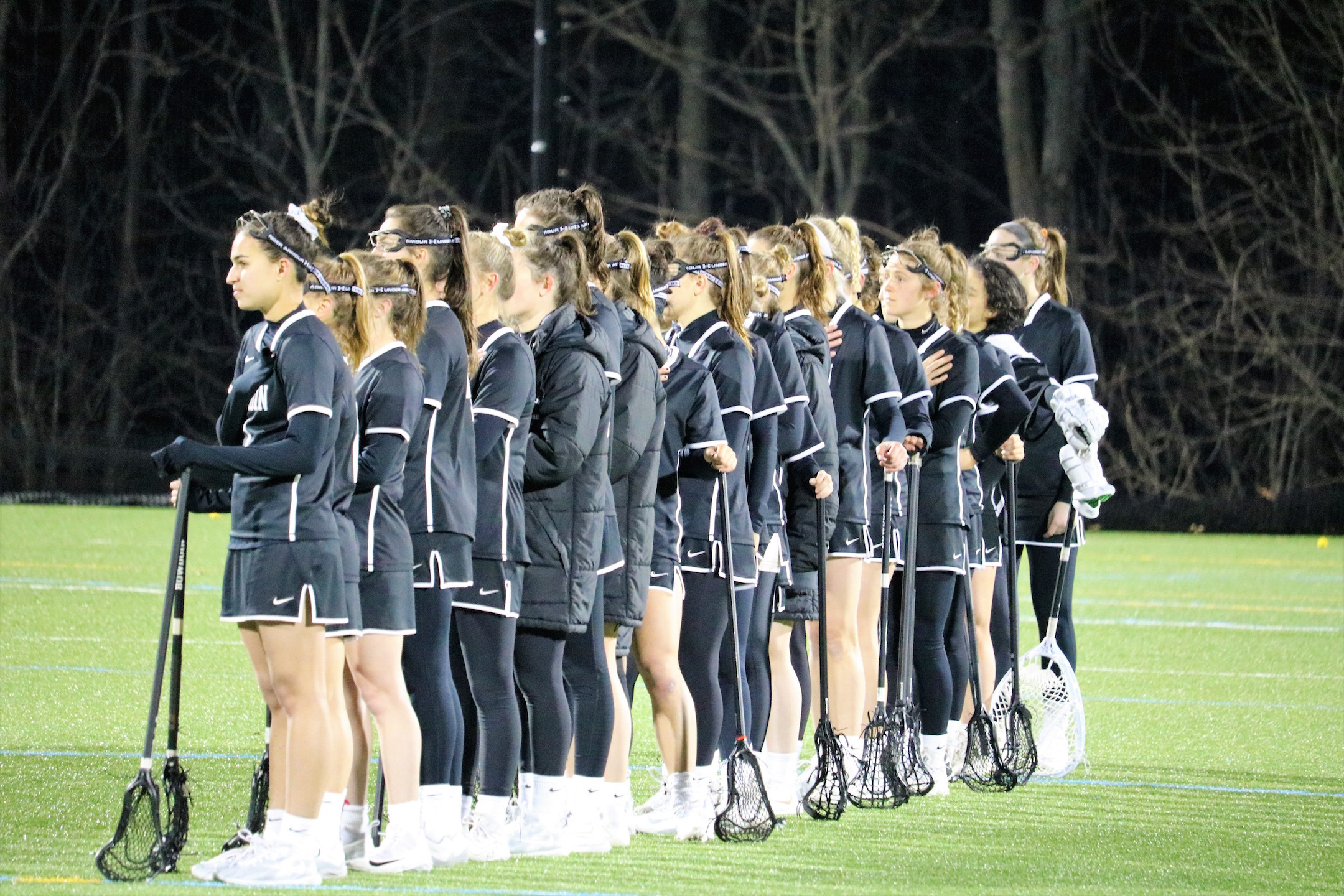Bowdoin Athletics: One Year Lost
March 12, 2021
For many Bowdoin student-athletes, being a part of a team is a support system: a group that acts as a family. But exactly a year ago, that world froze as the COVID-19 pandemic disrupted athletic competitions across the country and forced teammates apart.
Over the course of a week, teams went from eagerly anticipating their annual spring break trips to packing up their belongings and leaving their teams, their friends and campus indefinitely.
Baseball Head Coach Mike Connolly recounted the last week of Spring 2020 athletics in vivid detail. Every detail was still sharp in his mind—from the games canceled to those played, to the phone calls and texts concerned about the rapid development of events, to the mood at each stage of the dramatic week.
“It was surreal, it was all happening in real time, it was happening so fast and, obviously, it was unprecedented in terms of what was going on,” Connolly said in a phone interview with the Orient.
 Courtesy of Colby College
Courtesy of Colby CollegeTowards the beginning of the week, when Connolly received a call from an opponent clarifying the game was still on, he had no reason to expect anything out of the ordinary regarding the rest of the season or the state of the world.
“At this point any sort of shutdown … wasn’t even in the back of anybody’s mind,” Connolly said. “At that point, there was no chatter. It was not on anyone’s radar screen.”
Katie Miller ’21, a women’s lacrosse captain, recalled the lack of forewarning as well.
“There was no way any of us were convinced that it could end our season,” Miller said in a Zoom interview with the Orient. “It was just an unthinkable scenario.”
After a few phone calls and an emergency athletic department meeting evaluating the COVID-19 situation, things looked vastly different.
“When you’re in the moment, you’re just sort of trying to create a moment for the kids that is positive until you got to the point where everything was cancelled,” Connolly said. “At that point, the players were starting to get the sense that we were literally on a tightrope—that this all could kind of come apart at any point in time.”
More and more games were canceled for the baseball team over the course of that week in March, as was the case for other Bowdoin teams, until all that remained was one last game against Colby.
“They told us to do it locally—don’t leave the state at this point. We scheduled one more game for Thursday against Colby,” Connolly said. “And even as we boarded the bus for Waterville on Thursday, there was still a sense that ‘hey, we might not get to Waterville.’ There was a sense that the College might pull the plug on this one and start the process of having everybody pack and get the students home as quickly as possible.”
Knowing this game would be their last, the team was in a strange place mentally, but players were primarily grateful to be playing together.
“I would say that the kids were emotional, distracted. It was unlike any game we’ve ever been a part of. And I think that for the most part I was glad that we were able to allow our seniors to have kind of a senior day,” Connolly said.
After their last game, the seniors each got up in front of the team to share what being a Bowdoin athlete had meant to them and express their love for one another.
“It was really an outpouring of raw emotion—of how much they appreciated each other, how much they appreciate the experience, how important being a member of the program was, how important the friendships that they developed were,” Connolly said.
While Connolly was able to get a semblance of closure for his team, the men’s lacrosse team was less fortunate.
Head Coach Jason Archbell recalled that last week as well, saying that, unlike the baseball team, his team did not know their last game was their last until a day afterward.
 Courtesy of Brian Beard
Courtesy of Brian Beard“We thought we were playing one more game, which is why we practiced the next day, on that Thursday,” Archbell said. “That was tough because we had a normal-ish practice. I was doing what I normally do as a coach, and I think in retrospect I would have liked to have done something a little different if I had known that was our last day on the field together. But well, that’s sort of the way the whole thing worked, right?”
This lack of closure was a sentiment shared by all student athletes, ripped away from their team and sport far earlier than they had expected.
For women’s lacrosse, the last game was also incredibly emotional. Miller, who FaceTimed her team to watch the last hurrah from the hospital after tearing her ACL, recalled that the team’s last game included lots of tears and an amazing goal.
“It was an overwhelming sense of pride in Bowdoin lacrosse, but also just extreme sadness that something that we knew had so much potential had to come to an end, and there was nothing we could do about it,” Miller said.
What have we lost?
While no one could foresee the year ahead, student athletes wish they had savored what would be their final chances to compete. They are aware of the missed opportunities of a season cut short or, in some cases, not played at all.
“Everyone was just racing really well, and so I think our team was really trending in the right direction—we had a very emotional end,” John Auer ’23, a member of the men’s cross country and track and field teams, said in a phone interview with the Orient.
While missing out on competitions has been challenging, athletes have also had to work hard to practice and continue to improve independently while being mostly isolated from their teammates and coaches.
“My garage was my gym, so obviously without the gym space and without being able to touch a volleyball, it’s definitely not the same,” Allyson Hawkins ’22, a member of the volleyball team, said in a Zoom interview with the Orient. “You can keep that physical fitness, but being in volleyball shape is a lot harder if you’re not touching the volleyball.”
Student athletes also missed spending time with teammates—not only for support and motivation, but also for opportunities to build team culture and establish valuable connections.
“My first year of college, I was just trying to figure out where my classes were. I was just like, ‘which buildings were which?’ I wasn’t trying to intentionally get to know everybody,” Auer said. “I was just hitting my stride in getting to know upperclassmen and people outside of my grade [when we got sent home]. I think that’s definitely been what I miss the most—getting to build that family environment. The loss of that continues to be a real struggle.”
The loss of any in-person team culture and interactions between upperclassmen and first years has not only had an athletic impact, but a social one as well.
“The team has this institutional knowledge of the way that we do things on the team, like how we have certain strategies for different disciplines,” Preston Anderson ’22, a member of the sailing team, said in a Zoom interview with the Orient. “With this prolonged hiatus, we have lost that upperclass knowledge of the way that the team has done things in the past.”
Athletes have also worked to get used to a new daily rhythm that doesn’t revolve around off-seasons, practices and competitions.
“Honestly, it’s given me a lot of free time, but then also there’s that sense of structure we’re losing,” Hawkins said. “In the spring, we’re usually doing our optional open gyms and lifting, so you have this more of a routine—whereas now, you really have to push yourself to be able to get in and work out rather than just having a set practice schedule.”
 Courtesy of Brian Beard
Courtesy of Brian Beard“Learning how to prioritize the right things and taking care of yourself is such a big thing this year,” Shayla Eubanks ’23, a member of the women’s basketball team, said. “I don’t think it’s harder or easier, it’s just a totally different beast to take on.”
Athletes have learned to fill the absence of athletics by creating their own structure in their daily lives. Whether that has meant exploring an identity outside of being a student-athlete or involving themselves in other aspects of their sport, athletes have kept their time filled.
“In a way, it’s been a bit of a wake-up call,” Nick Leahy ’21, a member of the football team, said in a phone interview with the Orient. “I think especially at Bowdoin, people find [that] so much of their identity is based off what club they’re in or what sport they play … while I guess I still think I’m part of the football team in some form or facet, I think it’s been good to think about life outside of football.”
Leahy added that he has spent time skiing and playing pickup basketball to fill the void left by not playing football.
The time away from more structured athletics has also allowed athletes to think critically about their sport, their role in it and how they could improve the experience for future teammates.
“This has pushed me to reach out to my teammates a little bit more and see how they’re doing outside of the team and what they’re up to,” Anderson said. “I’ve also been working on a lot [of] diversity and inclusion initiatives and trying to progress change in our sport—I think that’s taught me a lot about myself.”
 Courtesy of Colby College
Courtesy of Colby CollegeMoving Forward:
Following the recent announcement that limited athletic competition will be back for the spring semester, a return to normalcy seems within reach. For the athletic department, however, this does not mean that the past year is forgotten or ignored—rather, the lessons learned since March 2020 can be taken and applied to athletics going forward.
Ashmead White Director of Athletics Tim Ryan emphasized that the loss of athletic competition has resulted in an increased emphasis on personal relationships within teams, relationships he considers essential to the Bowdoin athletic experience.
“[In a normal year,] everyone associated with athletics appreciates the opportunity to be with teammates and coaches and to have the opportunity to compete,” Ryan said in a Zoom interview with the Orient.”The last year has really highlighted for people the true value of those relationships and experiences.”
These relationships were the department’s first priority when athletic competition was cancelled last spring and coaches stepped into more personal support roles for their athletes.
“The thing that we emphasized right away in March of last year was the support that our staff could provide for members of their teams while they were going through a really, really difficult period,” Ryan said. “And that, I think, is something that we all will take with us as something that is incredibly valuable within the community that we have … the value of that work has been underscored, completely outside of the work our coaches do with students in the athletic arena.”
Ryan also highlighted the importance of carrying forward the department’s focus on Diversity, Equity and Inclusion (DEI) work this past year, even when a normal athletic schedule resumes.
“We’ve talked quite a bit about wanting to make the uncommon conversations common,” Ryan said. “And that I think will be critical as we transition back into a more traditional athletic experience for our students. It really isn’t an either/or question. It is, ‘how do we do both, really, really well?’”

Comments
Before submitting a comment, please review our comment policy. Some key points from the policy: